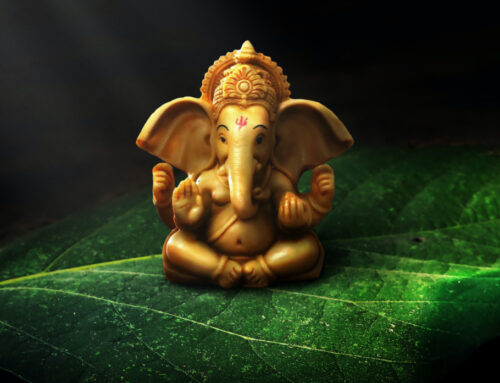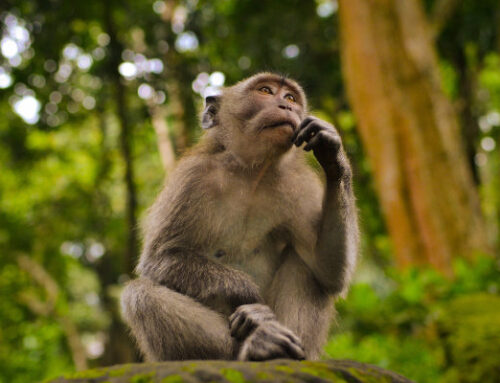If you’re not a religious person you might think faith has no significant place in your life. I certainly did, but I’m coming home to this word that I once rejected, and I think everyone practices faith whether they realize it or not.
My early experience with faith
Growing up as a Roman catholic, I heard that f-word a lot and came to associate it as a cop-out; a strategy to indoctrinate young inquiring minds. Whether it was Genesis, the Holy trinity, the immaculate conception, the Resurrection or a whale swallowing Jonah, I was told to accept it as true—on faith.
The answers I heard were always some variation of “You must accept everything in the bible and what we have to say about it on faith.”
After hearing this enough times I guess I did what most children did: I stopped asking questions and went through the motions. After all, everyone else seemed to be accepting it, and my critical questions met the silent disapproval of a fart in a crowded elevator.
Rejecting faith
As a young man I came to see faith as a tool of religious indoctrination, and I still believe religious authorities use faith as a strategy to indoctrinate, but I’ve come to see that rejecting the way they use faith is no reason to reject faith itself. That would be like rejecting dogs because some people breed some to be aggressive..
I also believed that faith and scientific inquiry were fundamentally opposed. I don’t believe that anymore
A better definition
Faith, for many, is the belief in something without proof—indeed despite evidence to the contrary. This last part isn’t in any official definition of the word, but many atheists believe it as the essential deficiency of the faithful.
I propose that faith is simply a conviction in the present or future existence of something—God, leprechauns, a loving family, a book deal, your future success, or meeting your childhood hero one day. This conviction comes from a choice to experience the possibility of this chosen thing now or in the future,and is why I don’t include the past in this view of faith. I could—many do—but I think discovery is more appropriate to the past, while experience—creative experience—is more appropriate to the present and any future (we create in the present).
This idea of Faith has less to do with proving the pre-existing state of something, and more to do with bringing a chosen state into experience.
Faith therefore is a choice, often unconscious, to believe something as true or possible.
Faith as the secret sauce
Faith is the secret sauce that brings our intentions, desires and fears into our experience. Faith is the conviction in our intentions, desires and fears—our belief—that they are true, or possible for us. Faith is why affirmations often don’t work: we say words with our mouths that our hearts don’t really believe is true or possible. We have no faith in the affirmation and saying it a thousand times a day will not change anything because our faith rests in the opposite of what we are saying in that affirmation.
Faith has no conflict with science
This necessarily means that faith has no inherent conflict with scientific inquiry—their purposes are completely different.
Science is concerned with physical laws that explain cause and effect well enough to predict future outcomes.
Faith is concerned with choosing to experience something out of all the possible somethings available. One requires logic, the other doesn’t. If this sounds crazy, then you should know that quantum physicists have demonstrated that sub-atomic particles pop in and out of existence; now that’s crazy
Faith in daily life
Faith will bring anything you focus on with acceptance (as true or possible) into experience, which is why you will begin to notice a whole bunch of new Teslas on the road the moment you drive yours off the lot, and why you’ll get tons of information on muslim terrorists the moment you really start believing they are a threat.
People who fear Muslims as terrorists are a brilliant example of how people unknowingly practice faith in day-to-day life. They focus exclusively on the atrocities of a tiny minority of Muslims who claim Islam justifies extreme violence, and ignore the peaceful nature of the majority Of Muslims who do not.
They have a perverse “faith” in their view of Muslims that is reflected in their experience: the emails and news stories they receive that all confirm their faith in Muslims being bad people.
Everyone has faith
This view of faith doesn’t require you to accept God, Pope or Oprah, and allows us to see that everyone practices faith, from the Pope to Richard Dawkins and Bill Maher.
Focusing on any firmly held belief, especially beliefs pre-laden with evidence, brings more of it into your experience. Believing people are selfish, politicians lie, corporations are greedy, Obama is a Muslim, immigrants are stealing our jobs, will bring supporting experiences into your life.
It works for good experiences as well. Many a famous person have described focusing on their future success with a conviction it would happen.
Schwarzenegger, J-lo, and Madonna all had faith in their future success and Arnold, when he was a beach-bum bodybuilder, famously “predicted” he would become a movie star and then the Governor of California.
You can choose whether faith is powered by God or quantum physics. (I’m not convinced they are so separate.) it works just the same.
Worry as a form of faith
Worrying is faith in bad outcomes. It focuses your attention on what you don’t want and helps bring those fears into your experience. Of all the possible future outcomes you could experience you choose to focus on the ones that deliver pain and hardship—and believe they may come true for you. Why, when you could just as easily focus on the possible outcomes that would deliver pleasure?
Faith as practice
Clearly worrying is a habit, a negative pattern of thinking that wears a groove in our minds that we can’t get out of. Harder still, because we don’t realize the potential for our worry to manifest our fears.
Hence faith is a practice, even to non-religious people, as it confronts you with your doubts about yourself, and what’s possible. The reason I chose to take it on as a practice is that if I don’t, all the negative beliefs I have about myself, people and the world get to keep centre stage in my mind and I’m clear this correlates with what I experience.
Faith as a litmus test
If you accept this view of faith you can also use it in reverse to see what your firmly held beliefs are (what you have faith in).
Just assess your repeated experiences in life and ask yourself “what do I have to believe about life, people or myself for this experience to keep happening in my life.” Even if you don’t accept what I’m putting out here, this is still an interesting exercise.
A room of 100
And if this perspective on faith still doesn’t resonate with you, think of it this way: in a room of 100 people, if you have a choice to focus on the smiling faces vs the angry, frustrated, depressed faces, why would you choose anything but the smiling faces? What does it matter if there are only ten happy faces in the room? You can still chose your experience of the people in that room while someone else gets to be right that most people in the room are unhappy. You can have faith in people being positive and happy, and have your faith be reflected back at you in those ten smiling faces
Faith is not about being right but about choosing what you want to experience
It takes practice to apply that in life and in I expect it applies in more places you can imagine. Everywhere in fact.
Have faith my friend.






Any thoughts? Contributions/acknowledgments welcome.